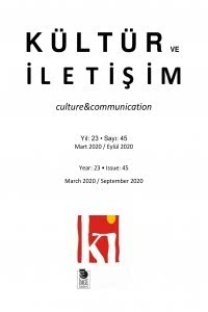Teknoloji, Disiplin ve Gözetim: Modern Kapitalist Devletten Postmodern Neoliberal Devlete Gözetimin Sürekliliği
Anahtar Kelimeler:
Technology, discipline, surveillance, Keywords: Big Data, Edward Snowden
Technology, Discipline and Surveillance: Continuity of Surveillance from Modern Capitalist State to Postmodern Neoliberal State
The surveillance of citizens by nation states through information and communication technologies is widely accepted as inextricable phenomena of modernity. In this framework, the concepts of discipline, surveillance and technology have had great importance in critiquing and understanding modernism, particularly in the context of dissolution of individual freedom. However, from the last quarter of 20th century on, in parallel with the transformation of communication technologies, nation states began to lose their monopoly on surveillance technologies which were now also owned by private companies and ordinary citizens. This advancement in communication technologies caused a major shift toward the understanding of fundamental concepts like discipline and surveillance. Today, it is widely argued that discipline is not the main idea behind surveillance anymore, and state surveillance is not a threat to freedom since neoliberal states do not have capabilities of centralized surveillance. This approach became quite popular since many distinguished scholars including Zygmunt Bauman and Manuel Castells support it. This study aims to explore some problematic aspects of the most common approaches to surveillance and claims and to argue that even though there have been important changes in surveillance practices, state surveillance, disciplinary tendencies and dissolution of freedom are still important threats to individual freedom within the neoliberal state as they were in the modern capitalist state. For this purpose, some ideas of Max Weber, Frankfurt School thinkers and Michel Foucault on the modernist surveillance and discipline have been utilized to show continuities and totalitarian tendencies of neoliberal surveillance in democratic societies. Theoretical exploration in this article, supported by documents leaked by Edward Snowden through Washington Post and The Guardian and some examples of the use of Big Data technologies by democratic states, has been utilized to show that state surveillance along with the private surveillance still poses great threat to freedom and it is very unconvincing to claim that advanced neoliberal societies do not have tendencies toward totalitarianism.
- ISSN: 1301-7241
- Yayın Aralığı: Yılda 2 Sayı
- Başlangıç: 1998
- Yayıncı: İmge Kitabevi Yayınları
Sayıdaki Diğer Makaleler
Yedinci Sanat Aylık Sinema Dergisinde Film Eleştirisinin Ana Çizgileri
Popüler Tarih Dizileri Bağlamında Televizyonda Tarih İnşası ve Politik Tartışmalar
“Özgürlük için Basın” II. Ulusal Konferansı’nın Ardından Notlar
Versions of Minor Literature: Two Contemporary Cases from Turkish Film
Images of Suffering: Between the Obligation to Display and the Difficulty of Concealing
Sabiha Zekeriya Sertel: Erken Cumhuriyet Döneminde Kadın, Muhalefet ve Basın
